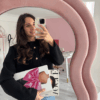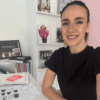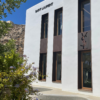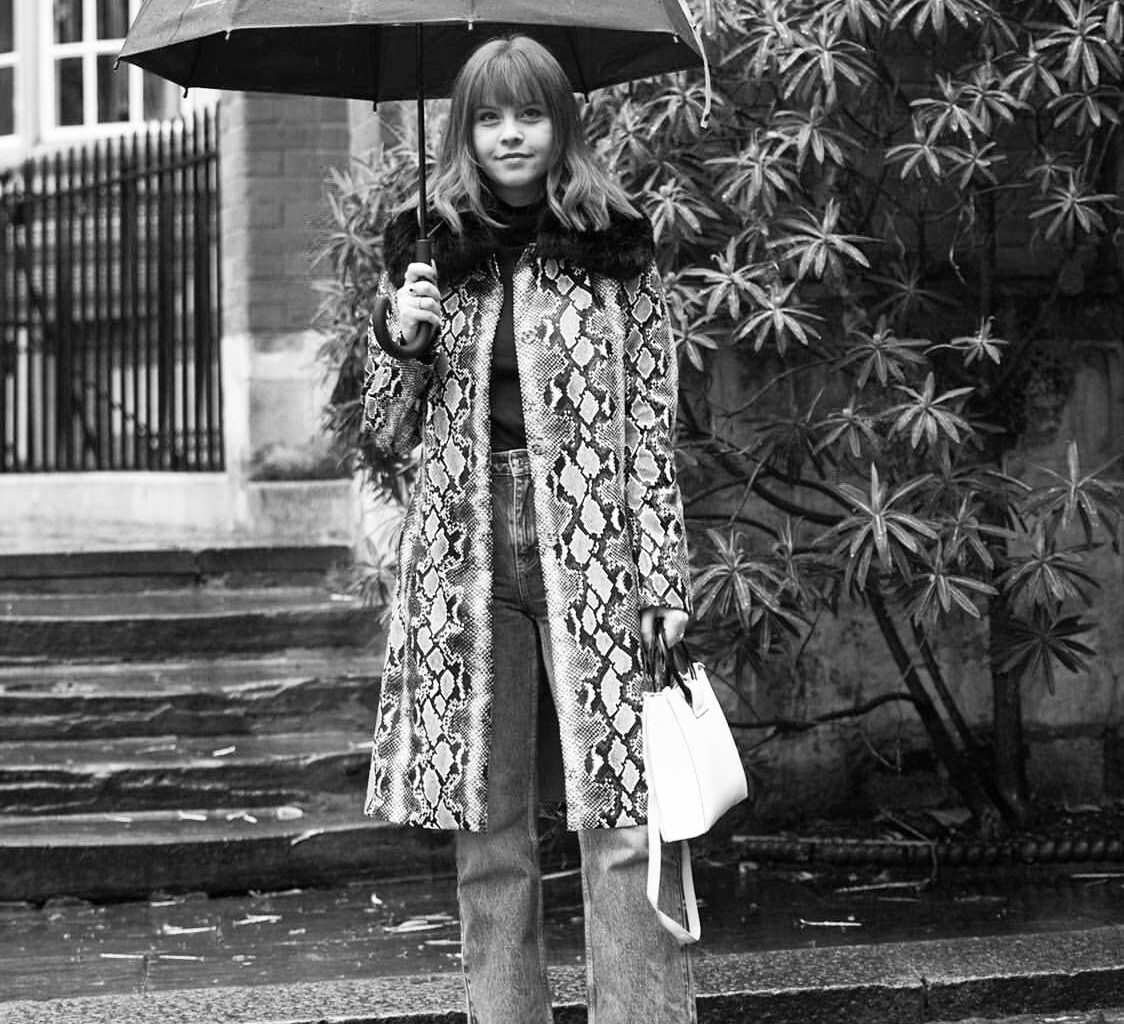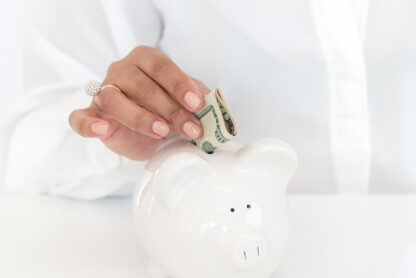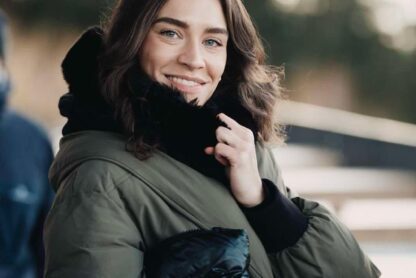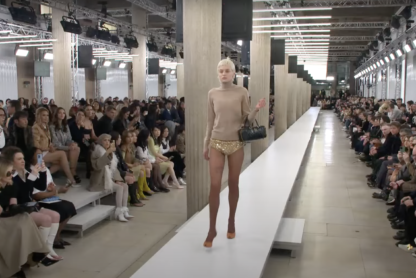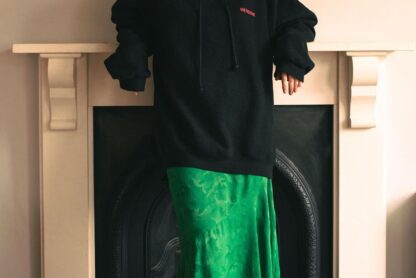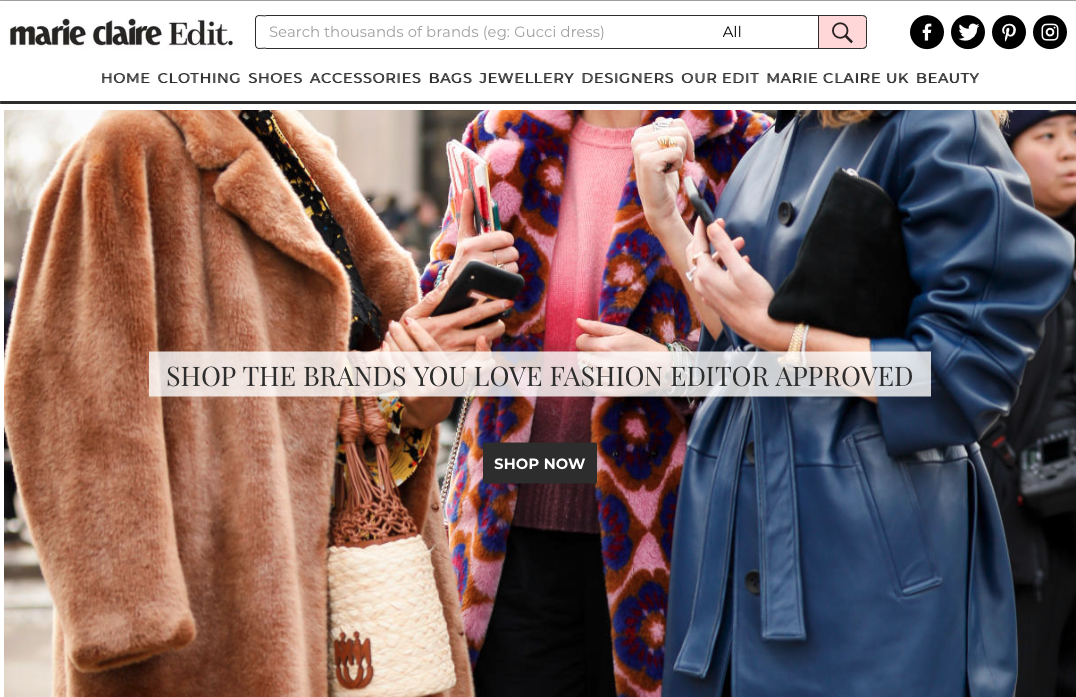‘The proof of industry experience is important and might make you progress quicker than a degree in fashion’ or ‘definitely go to uni. It will help you to get into a good position later on’.
Two completely different opinions all of those get to hear, who are just commencing their career in the fashion industry. In the end, we are being left alone and have to decide what is ideal for us.
Are we confident and hardworking enough to jump right into the business? Do we want to get deeper into the theory of fashion? Or do we maybe want to do both?
Charlotte Harney, currently working as a junior fashion assistant at ELLE UK (@harneyyy on Instagram) decided that she wanted to attend a fashion course and parallelly gain industry experience.
Working her way up, she constantly stayed in touch with people from her previous positions, which furthermore enabled her to successfully work as a freelancer.
In this interview, she tells us about her fashion degree, her role at ELLE, and gives advice for freelancers, whose jobs are negatively affected by the Corona crisis.
- Hey Charlotte, welcome to Glam Observer. May you shortly introduce yourself to the Glam Observer community?
Hi! So nice to chat with you guys. I’m Charlotte, I’m 23 and from London. I’m currently on a year contract as junior fashion assistant at ELLE UK and freelance myself as a stylist and assistant.
2.You studied at London College of fashion. Even before your course commenced in 2015, you gained precious industry insights through various styling assistant positions. What did these experiences teach you? Did these positions influence your decision to take a degree in styling and production later in 2015?
I started assisting a freelance stylist the summer after my foundation course finished and continued this through university. I studied a fashion foundation course at Kensington and Chelsea College and while there I really began to understand the work I wanted to do in the industry and enjoyed creating and styling my own shoots. It was always quite a big decision for me, choosing whether I wanted to go straight to work or to university, so I realised, why couldn’t I do both? I knew gaining experience was one of the only real ways to get into the industry so I figured it made sense. I’ve always been someone who has multiple projects or interests happening at the same time, so it was quite natural for me to want to gain experience as soon as I could. I learned to keep in touch with people, always offer help and always reach out, you never know when something might come up.
These positions did influence my decision for sure. When I found the right course, I realised I had the chance to be creative myself and create my own work while also gaining work experience from stylists already in the industry. The experience also teaches you whether or not you really want that job, it can look quite different from the outside so it’s good to get first hand experience.
3. During your time at university, you continued interning and assisting at several fashion publications in the UK, including ‘Hello!’, ‘Love Magazine’ or ‘Cosmopolitan’. How did you manage assisting and attending University at the same time?
It was difficult at times. I had very little spare time! I think assisting before I started university was the best thing to do as once I had that first assisting job, I didn’t want to stop. I was lucky that my course was very self directed, so it was all on me to balance my workload and organise my time, and I became quite good at doing that. I also tried to stick to applying or booking in bigger jobs during the holidays so I didn’t miss lectures. Until half way through my second year I only assisted freelance stylists too, rather than magazines where you had to work full time. I became fashion assistant for a new magazine when on my second year work placement, which was started by a stylist I had previously assisted, and that’s when I realised I’d like to gain more experience within publications. It also really taught me to keep in touch with the people you work with or know!
4.You are currently assisting at Elle Magazine. Can you tell us a little bit about the responsibilities and challenges of this position?
Of course. It’s been a really great experience. The responsibilities I hold include prepping and assisting on shoots, organising the teams events calendar, Fashion Month scheduling, creating fashion galleries or pieces for ELLE digital, styling the ELLE waking up with series and sourcing imagery for the print shopping pages. It’s definitely a job you grow into. In such a fast-paced environment it can be daunting at first but managing workload is key and staying organised!
5.What characteristics and skills are appealing for recruiters, when looking for a fashion assistant? Is a degree in fashion necessary for being successful in your opinion?
I think eagerness to work and to learn is really key. If you can show that you will work really hard, think for yourself and also acknowledge that you are always learning, that’s a great start. Adaptability and initiative, showing that you can think fast to sort a situation! Passion is very important but also proving that you know it’s not all glam! It’s key to love fashion but they need to know you can do the more mundane stuff too. Express your other interests, whether it be writing, film knowledge or music, show why you’re different. And also just being friendly, someone the team is going to want around and want to work with – this makes you memorable!
I don’t believe a degree is essential, work experience definitely is!
Having a degree helps make you more employable and potentially noticeable. It also gives you the chance to be creative yourself, do your own work and collaborate with other creatives on your level.
6.You used to work as freelance assistant. What are the perks of being freelancer in the fashion sector?
I loved the variation of freelancing. Working on different jobs, for different magazines or talent and with different stylists and teams. It’s quite inspiring and you learn a lot from seeing how others work. You can manage your own workload and time and you can also choose where you work from which is nice!
7.Do you have any advice for freelancers in the fashion industry, who are currently struggling to find a job due to the crisis?
It’s such a difficult time at the moment and can be very daunting having bills to pay and being freelance. I think my advice would be to stay creative. Use social media in a positive way to inspire you and to showcase your work, regardless of your following. Create – whether that’s taking photos or painting or writing. It will make you feel more productive and also, you’ll have something to show once this is over. Read, learn new things about your job you didn’t know yet or brush up your knowledge so you feel ready to work again!
8. In how far has your everyday life and work rhythm changed since the pandemic started?
Luckily, I am still working at the moment but I am due to go back to freelancing soon! This has changed the way we all need to think, coming up with new ideas and content that is appropriate to the current situation. Giving people enjoyable content to read or images to look at while being sensitive to what is happening. Personally, the everyday life and work rhythm has changed through personal interaction. Part of this job is communicating and networking so I do miss connecting with people face to face.
9.What are you doing, in order to stay sane and productive in times of lockdown/quarantine?
I am sticking to a daily routine of what time I wake up and when I go to sleep. I try to go for a walk first thing in the morning, to get some air and get ready for the day. It energises me and replaces my commute to work. I try to do yoga or work out but also to give myself downtime. I’m reading books, have made a list of movies I want to watch and facetiming friends and family and have also focusing on hobbies I didn’t have time for before (mines baking!). Having a routine of when to work (or if you’re not working, when to be productive and tick of your to-do list) and when to relax is really useful to me.
10. Do you think corona is resulting in a change in the fashion industry, such as more sustainability, slower production and consciousness? What changes are you looking forward to and what do you think could affect the industry negatively?
Definitely. Well, I hope so at least, I hope it creates a change in the way we treat the environment and look at sustainability generally as well as in the fashion industry. I’m looking forward to seeing how we can be more creative with what we already have and to see how new collections change or adapt. I hope more brands will look at producing their collections more sustainably. I think the negative side of it is how quickly it’s happened. Though this will be good for the environment, it could potentially change people’s job role and careers and may take some time to navigate how we work.
11. Last words?
When starting out, don’t let any experience be a bad one. Learn from your mistakes and realise if you make them it’s not the end, it’s actually a good thing. Believe in yourself, its cliché but so important. You have to keep pushing and believing in yourself, others can help you but ultimately, it’s you who will achieve your goals. When you work hard and do your best let that speak for itself and trust that you will get to where you want to be!
Do you dream to write for your favorite fashion publications, get your work published and have the freedom to make money working in fashion from anywhere? Learn more and enrol for the Fashion Writer Accelerator Course today.
Interview by Lilly Meuser
